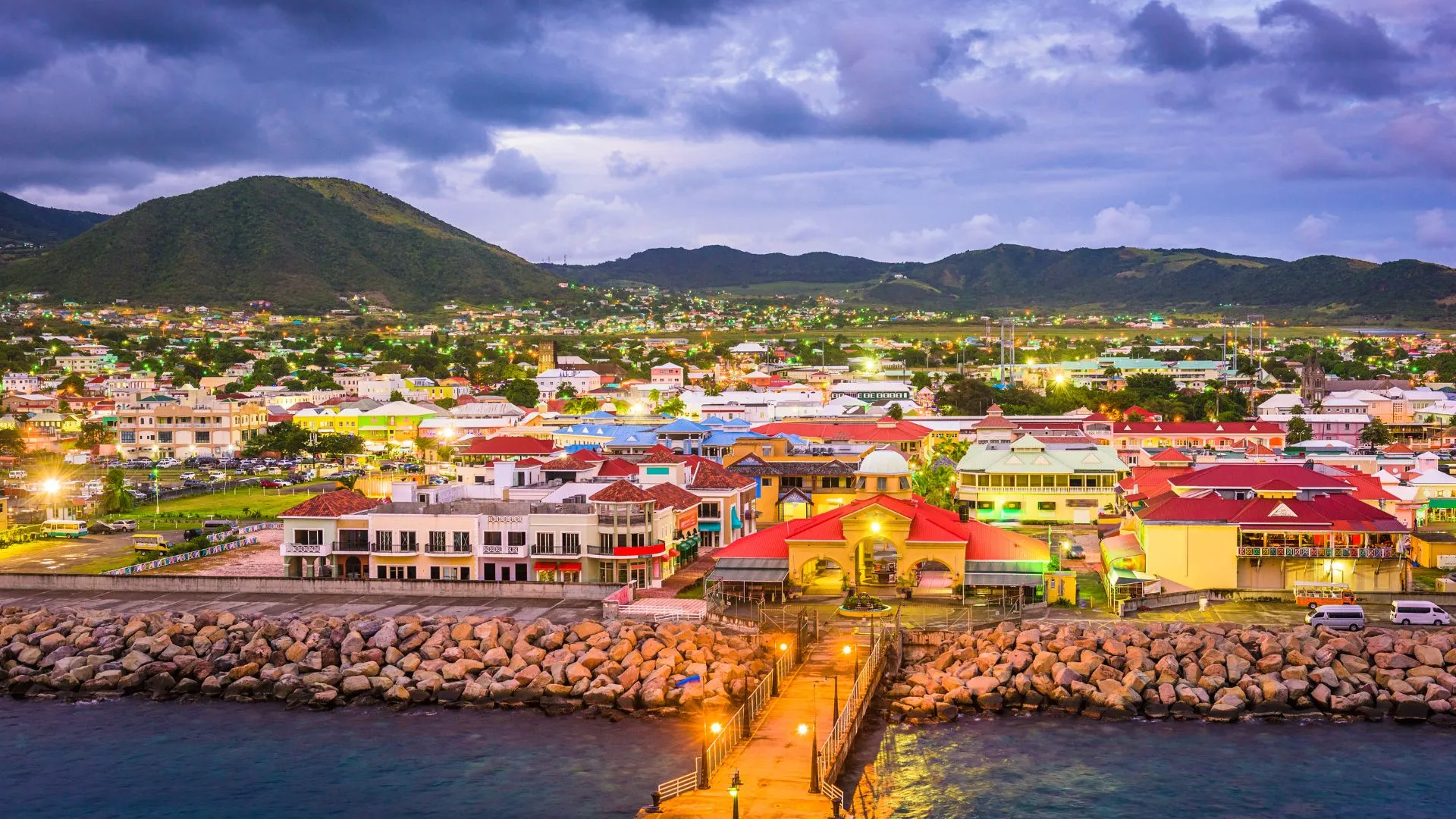 Nevis is part of the federal constitutional monarchy of St. Kitts and Nevis, with two spheres of government: the federal government and the Nevis Island administration. Nevis (Oualie – the land of beautiful waters) is one of the most pristine and tranquil islands in the Caribbean. With its lush green landscapes, clear blue skies, fresh air, and unspoiled, expansive beaches, Nevis offers a pace of life that invites you to pause and embrace the island’s breathtaking natural beauty.
Nevis is part of the federal constitutional monarchy of St. Kitts and Nevis, with two spheres of government: the federal government and the Nevis Island administration. Nevis (Oualie – the land of beautiful waters) is one of the most pristine and tranquil islands in the Caribbean. With its lush green landscapes, clear blue skies, fresh air, and unspoiled, expansive beaches, Nevis offers a pace of life that invites you to pause and embrace the island’s breathtaking natural beauty.
Nevis is also the birthplace of Alexander Hamilton, who served as the first Secretary of the Treasury of the United States (US) from 1789 to 1795 during George Washington’s presidency.
The year 1994 marked Nevis’s emergence as a premier international financial jurisdiction for asset protection with the unveiling of the Nevis International Exempt Trust Ordinance (NIETO). This groundbreaking legislation revolutionized the global asset protection landscape, quickly establishing Nevis as one of the top destinations for international investors seeking to safeguard their assets. The 2015 amendments further strengthened its position, enhancing key features and introducing robust protection mechanisms that make Nevis trusts a powerful and dependable shield for asset protection—a true bastion against external threats.
Nevis Trusts offer numerous advantages, and in this article, we will introduce you to some of the benefits provided by NIETO. Let us look at the key protective features of the Nevis jurisdiction and how the trust will work for different situations clients seek, such as asset protection, estate planning, and confidentiality.
The primary advantage of a Nevis trust is its robust asset protection. Nevis does not recognize judgments from foreign courts, providing an additional layer of security for trust assets. Furthermore, Nevis law imposes a strict two-year statute of limitations on claims of fraudulent conveyance. After this period has lapsed, creditors are legally barred from pursuing litigation to access the trust’s assets.
In addition, any creditor must retain a local attorney in Nevis. This is not a straightforward task, as most attorneys in Nevis represent trust companies and banks as clients. Even if a creditor can find legal representation, Nevis law prohibits contingency fee arrangements. Furthermore, the Nevis High Court may require the creditor to post a bond of $100,000 before initiating any claim. If the creditor is unsuccessful in the legal action, they will be obligated to pay the trust’s legal fees and court costs, as well as those of the opposing party.
The paramount advantage is that the law in Nevis separates creditor claims, preventing multiple creditors from bringing joint actions. Even if a fraudulent transfer is proven, it does not invalidate the trust.
NIETO allows property owned by tenants by the entireties (“TBE”) contributed to an international trust by married couples to continue to be treated as TBE property. TBE is a form of property ownership for married couples that, in many jurisdictions, prevents the creditors of only one spouse from attaching to the property.
Another key benefit of the Nevis jurisdiction is privacy and confidentiality. While a Nevis trust must be registered in Nevis, details of the trust, including settlor and beneficiary information, are not disclosed. Nevis does not have an ultimate beneficial owner (UBO) register. One can search the registry for the status of an international business corporation (IBC) or a limited liability company (LLC), but no searches can be conducted on a Nevis trust. In fact, Nevis has a law specifically to protect client information from misuse. The Confidential Relationships Act makes it a criminal offense to disclose confidential information of a business or professional nature, including information about Nevis trusts.
Furthermore, the NIETO allows for the appointment of a Protector, whose job is to oversee the operations of the international trust. The Protector ensures that the trust’s purpose is carried out. A recent amendment to the Ordinance clarifies that the Protector has the authority to direct or approve actions of the trustee, such as making distributions or choosing specific investments. The law also provides protection to trustees, ensuring they are not liable for following the Protector’s directions unless the trustee engages in willful misconduct.
The “Proper Law” of the international trust is the law of the jurisdiction specified in the trust’s terms. If the terms don’t specify this, the law of the jurisdiction most closely connected to the trust when it was created will apply. If neither applies, the law of Nevis will govern the trust.
Under Nevis’ laws, the Registered Agent responsible for registering the international trust must keep accurate and up-to-date information about the trust’s customers, including the beneficial owners. This includes details about the settlor, trustees, protectors, and beneficiaries. Furthermore, the Ordinance states that all non-criminal legal proceedings related to the international trust will be held privately (in camera), and no information can be published without the Court’s approval.
Disclaimer: the article above is for information purposes only. It is not intended to constitute legal or tax advice. If you are planning to establish or place assets into an offshore structure, please consult beforehand with legal and tax professionals in your jurisdiction(s) of tax residence.



